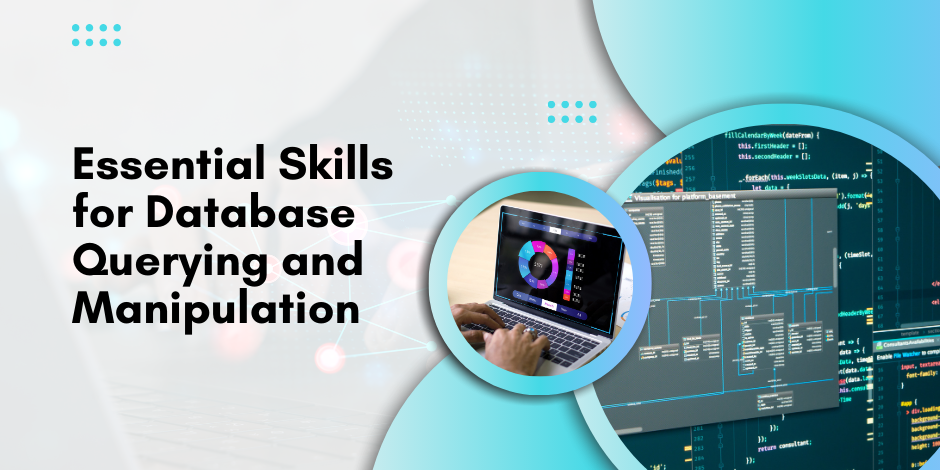Mastering SQL: Essential Skills for Database Querying and Manipulation

Stay Informed With Our Weekly Newsletter
Receive crucial updates on the ever-evolving landscape of technology and innovation.
Structured Query Language (SQL) is a standardised programming language designed to manipulate and manage relational databases.
Mastering SQL is a vital tool in the arsenal of any data professional, from database administrators to data analysts.
Mastering SQL is not just about understanding the syntax but also about developing a deep understanding of databases and how to query and manipulate them effectively.
Understanding SQL: A brief overview

SQL is a declarative language, which means you tell it what you want, and it figures out how to do it.
This contrasts imperative languages like Python or Java, where you must specify precisely how to achieve the desired result.
SQL is used to communicate with a database and perform tasks like creating tables, inserting, retrieving data, and updating and deleting data from a database.
One of SQL’s main advantages is its simplicity. The syntax is relatively straightforward, and many commands are based on English words.
For example, to retrieve data from a database, you would use the SELECT statement, followed by the names of the columns you want to retrieve, and the FROM keyword, followed by the table name.
Mastering SQL: Essential skills for querying and manipulating databases

Mastering SQL involves developing a range of skills, from understanding the basics of the language to writing complex queries and manipulating databases.
Mastering SQL includes some of the following key skills.
Understanding database structures
Before writing SQL queries, you must understand how databases are structured.
A relational database is made up of tables, which are like spreadsheets with columns and rows.
Each row represents a record, and each column represents a data field. Understanding this structure is crucial for writing effective SQL queries.
Additionally, databases often have relationships between tables, known as foreign keys.
Understanding these relationships is another key aspect of mastering SQL, as it allows you to write queries that span multiple tables.
Writing basic SQL queries
The first step in mastering SQL is learning to write basic queries.
This involves using the SELECT statement to retrieve data from a database. For example, to retrieve all data from a table called ’employees’, you would write: SELECT * FROM employees.
The asterisk (*) is a wildcard character that represents all columns.
As you progress, you’ll learn to write more complex queries, using clauses like WHERE to filter results, and JOIN to combine data from multiple tables.
Mastering these more advanced aspects of SQL will allow you to retrieve the data you need in the format you need it.
Manipulating data with SQL
Mastering SQL isn’t just about querying data; it’s also about manipulating it.
This involves using statements like INSERT, UPDATE, and DELETE to add, modify, or remove data from a database.
For example, to add a new record to the ’employees’ table, you would use the INSERT INTO statement, followed by the name of the table, the names of the columns you want to insert data into, and the VALUES keyword, followed by the data you want to insert.
Advanced SQL skills

Once you’ve mastered the basics of SQL, you can learn many advanced skills to enhance your database querying and manipulation abilities.
These include understanding and using subqueries, stored procedures, triggers, and transactions.
Mastering subqueries and joins
Subqueries and joins are powerful SQL tools that allow you to work with data from multiple tables.
A subquery is a query embedded within another query that can be used to retrieve data based on its results.
On the other hand, Joins allow you to combine data from multiple tables based on a related column.
Mastering SQL techniques can significantly enhance your ability to work with complex databases and retrieve the data you need.
Understanding stored procedures and triggers
Stored procedures and triggers are advanced SQL features that greatly enhance your database manipulation abilities.
A stored procedure is a precompiled collection of SQL statements that can be executed as a single command.
Triggers, conversely, are particular types of stored procedures that are automatically executed in response to certain events in a specific table or view.
Mastering SQL features can allow you to automate complex tasks and ensure data integrity in your databases.
Conclusion
Mastering SQL is a journey that involves developing a deep understanding of databases and learning to query and manipulate them effectively.
There are many skills to learn and master, from understanding database structures and writing basic queries to mastering advanced techniques like subqueries and stored procedures.
However, with practice and persistence, you can become proficient in SQL and greatly enhance your abilities as a data professional.
So why wait? Start your journey to mastering SQL today!
Want to advance your data science career? The Institute of Data’s Data Science & AI programme equips you with the latest tools and technologies taught by leading industry experts.
We’ll get you job-ready with a supportive environment, extensive resources, and flexible learning options catered to your time requirements.
Ready to learn more about our programmes? Contact our local team for a free career consultation.




